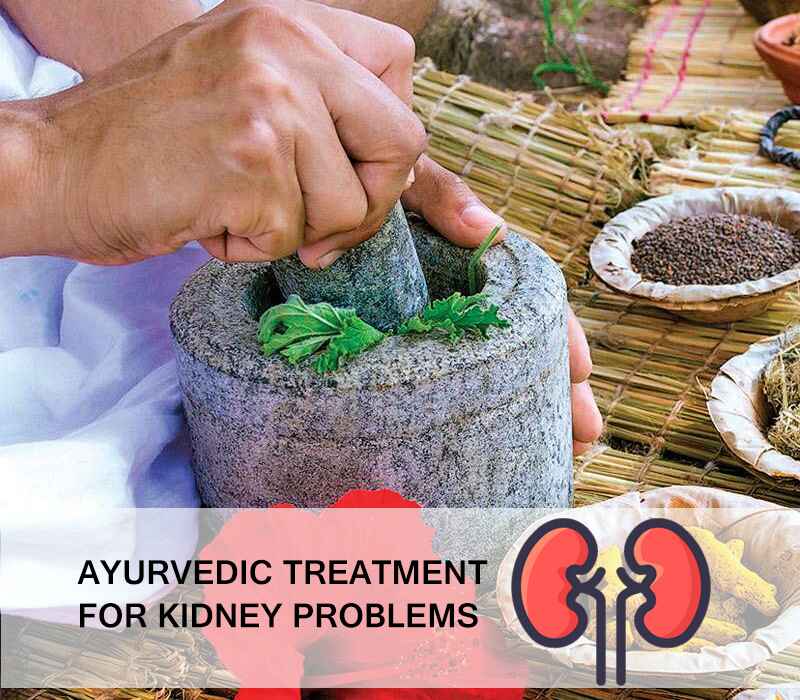
Kidney issues can be daunting, whether they involve the early phases of decreasing function or more complicated chief states like chronic kidney disease (CKD). Modern medicine has answers like dialysis or transplants, but many people are seeking advice from Ayurveda, the ancient Indian healing system, for natural, holistic ways to maintain or even help kidney healing and repair. Ayurveda aims at bringing balance to the body, mind, and spirit, working on the root cause of kidney problems instead of covering up the problem. This blog explains the role of Ayurveda to treat kidney problems, prevent complications, and lead a long-term wellness journey naturally and humanely.
Ayurveda associates kidneys with Mutravaha Srotas (urinary system) and is ruled by Apana Vata (a subtype of Vata dosha responsible for elimination). Kidney problems are related to imbalances in the three Ayurvedic doshas: Vata, Pitta, or Kapha, which are a result of poor eating habits, stress, dehydration, and/or toxins in your system (Ama). Swelling, fatigue, high blood pressure, and changes in urination are symptoms that the kidneys need attention.
According to Ayurveda, kidney issues reflect an imbalance in the body. While conventional medicine emphasizes symptom management, Ayurveda seeks to restore balance and strengthen the function of the kidneys via diet, herbs, lifestyle modifications, and cleansing therapies that prevent further complications from arising. Let’s discuss the most effective Ayurvedic ways to get rid of kidney disorders.
Diet: This is the crux of Ayurvedic treatment for kidney issues. The right foods nourish the kidneys, quell inflammation, and flush out toxins. Here’s the lowdown on good diet habits for kidney health:
A typical Ayurvedic meal for kidney health might include khichdi (a dish of rice and mung dal), steamed vegetables, and a side of cucumber raita. Eating mindfully and avoiding overeating are also key to supporting digestion and kidney function.
Ayurveda offers a treasure trove of herbs to support kidney health, reduce inflammation, and promote detoxification. Always consult an Ayurvedic practitioner before starting herbal treatments, as dosages and combinations vary based on your condition. Here are some of the best herbs for kidney problems:
These herbs are often combined in personalized formulas to address specific imbalances. For example, a practitioner might prescribe a blend of Punarnava and Gokshura for someone with swelling and poor urine output.
Panchakarma, Ayurveda’s signature detoxification therapy, is a powerful way to cleanse the body of toxins and restore kidney function. This multi-step process is tailored to your dosha and health needs, but typically includes:
Panchakarma should be done under the guidance of a trained Ayurvedic practitioner, as it’s a potent therapy that requires preparation and post-treatment care. Even a single session can leave you feeling lighter, more energized, and better equipped to heal. A reputed medical facility like Karma Ayurveda can be a good choice for you.
Ayurveda emphasizes that lifestyle is just as important as diet and herbs. Kidney problems often worsen due to stress, irregular routines, or overexertion. Here’s how to create a kidney-supportive lifestyle:
A simple daily routine might include waking up early, practicing yoga, eating a warm breakfast, and winding down with meditation before bed.
The beauty of Ayurveda is its focus on prevention. To eradicate kidney complications, consistency is key. Stick to your Ayurvedic diet, take prescribed herbs, and follow your practitioner’s advice. Regular check-ins with both your Ayurvedic practitioner and a medical doctor can help monitor progress and catch any issues early.
Ayurveda also encourages mindfulness about your body’s signals. If you notice swelling, changes in urination, or fatigue, don’t ignore them. Address these symptoms promptly with dietary tweaks, herbs, or therapies to prevent complications like kidney stones or advanced CKD.
While Ayurveda offers powerful tools for kidney health, it’s not a replacement for medical care, especially in advanced cases. Always work with a qualified Ayurvedic practitioner and consult your doctor to ensure your treatment plan is safe and effective. Combining Ayurveda with modern medicine can create a holistic approach that addresses both symptoms and root causes.
Ayurveda offers a gentle, natural way to treat kidney problems and prevent complications. By embracing a kidney-friendly diet, using potent herbs, detoxing with Panchakarma, and adopting a balanced lifestyle, you can support your kidneys and reclaim your health. The journey to healing takes patience and commitment, but the rewards, better energy, reduced symptoms, and a stronger body, are worth it. If you’re ready to explore Ayurveda for kidney health, find a trusted practitioner like Karma Ayurveda for kidney problem for long-term relief.

Certificate no- AH-2023-0186
JAN 05,2023-JAN 04,2026
"Ayurveda is not just a system of medicine; it's a way of life. Connect with us to embrace a lifestyle that nurtures your body, mind, and soul."
Book Consultation Now